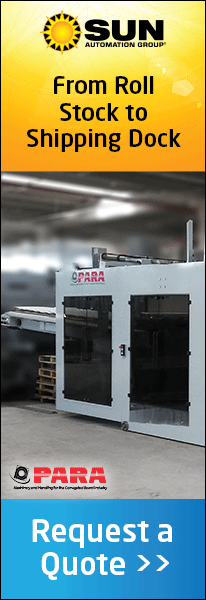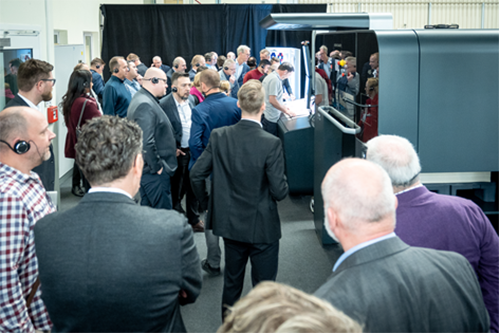Koenig & Bauer Durst is scaling up its VariJET 106 build program to cope with high demands for digital production in folding carton markets, which it expects to accelerate further this year. The announcement comes as two beta sites get under way and the first commercial customer will start live production in the second half of the year, as confirmed at a recent open house event.
Printing starts in May at a first beta site of the VariJET 106 B1 single pass digital press for folding carton markets. A second beta test customer, also in central Europe, will begin a few weeks later. The VariJET 106 is the first joint development between Durst and Koenig & Bauer. The announcements were made at Koenig & Bauer Durst VariJET 106’s Open House at Sheetfed Division of Koenig & Bauer where more than 60 delegates have been hosted in Radebeul, Germany, on April 26-27.
Robert Stabler, Managing Director of Koenig & Bauer Durst, said, “Built on market-proven technology, the VariJET 106 installations represent huge statements to the market – and we are really pleased with the substantial progress that has been made. Production is being ramped up and new machines will become available in the second half of 2023 on the back of the relatively high demand we are witnessing.”
He added, “These presses are tailored to individual requirements and afford a major opportunity for those companies that can optimise their production and reduce costs while offering new high added value business models. Challenges like these are what our VariJET 106 has been developed to answer. The VariJET 106 combines the best of both worlds of Koenig & Bauer’s Rapida 106 technology and all the digital know-how and expertise of Durst. It brings together the strengths of digital inkjet and classic offset printing.”
Koenig & Bauer Durst’s VariJET 106 is equipped to be able to address a wide range of applications. The press produces up to 5,500 sheets per hour. It uses water-based inks that comply with all the main food security standards. The inks are also de-inkable which is important to future proof an investment in the light of tightening legislation around recyclability and reusage rates.




